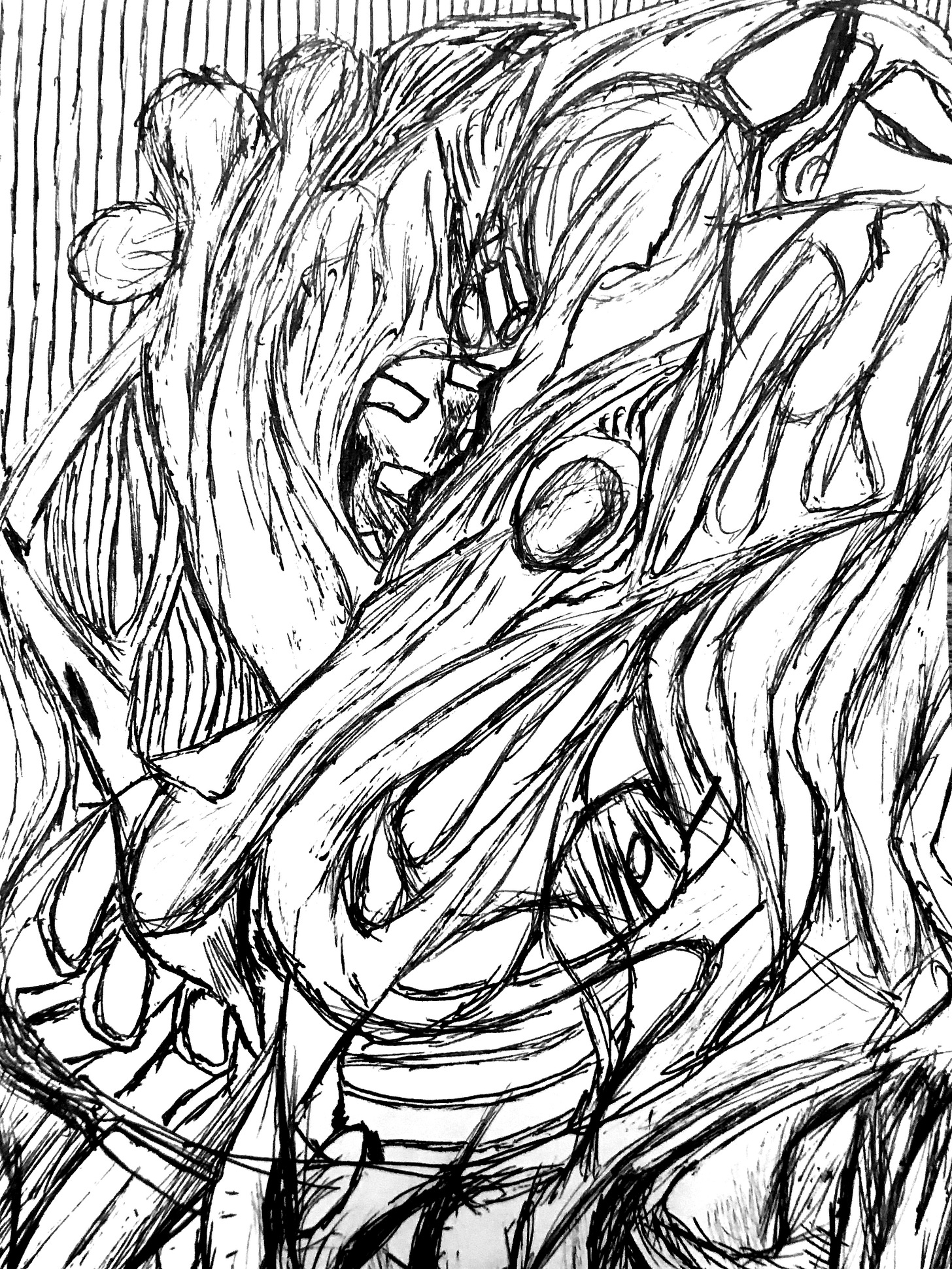Some domesticated chimpanzees have attacked their human overseers, who they've come to know as their loving family. I watched an interview with a woman who'd been mauled, and had her entire face cosmetically reconstructed with skin graphs. This image, along with her account of an unforeseen psychotic break from this primate she'd come to love as a child, is enough to cause a shift in how you understand these creatures.
With all the DNA we share with the chimps, they find themselves subjected to an unsavory human impulse to command its own image from the amoral pits of nature. The kinship longs from a distance with an innocent glance, wanting to touch hands and embrace their cuteness, witness their goody playfulness with their exaggerated features. But they are ticking time bombs with the unforgiving violent force of nature. A trusting relationship can be established with one them over decades, and nothing will protect you from their death spell of unprovoked fiery hormonal aggression.
There's been efforts to impart oral language to them, but they can't seem to shape their mouths with the muscle precision we can. Cognitive abilities have been measured, however, and they've proven decent pattern recognizers and puzzle solvers. We wonder if we could just speed their neurological capacities along to expedite evolutionary processes, we could relate to them as peers someday. Planet of the Apes supplanted this mythology, but what inspired the story has its origins in the natural human yearning to speak directly to Nature.
Nature is evidence of life completely unburdened by human consciousness, an essence we know to host a tortured existence, with financial anxieties, demands of the ego, and complex variations on emotional pain. In their naked, unashamed bodies, their lack of employment, the absence of inner monologues, the chimpanzees are envied and admired for their freedom from being human.
You'd expect socialization to remedy the loneliness of our struggle, but humanity experiences its collective isolation together. We either see ourselves in others, or we witness universal qualities in people we don't relate to at all. Either way, there's no reference point to be seen outside of the parameters of humanity. So when the monkeys fail to oblige us, clawing our flesh during a psychotic break, we move on and dream of the aliens.
We crave to make contact with the extra terrestrials, imagining them as beings of a higher consciousness. Quasi-religious sentiments about their potential to enact a type of rapture, where we are either saved from a dying planet, or executed for our unworthiness to free up our land and resources. Before we had our heavenly bodies, the angels, but then science fiction carved a space into our collective yearnings for divine intervention. Our intense curiosity, and the mythologies we've built around them, boils down to a vision of ultimate surrender. When we lose trust in our ability to self-govern, that's when we subject ourselves to cult leaders and fascist regimes.
If the martians chose to place us in their zoos, unable to interact with our base linguistic models, perhaps they will justify our captivity citing longer lifespans and an improved social welfare system for the human species. Under these conditions, would we revolt against our subjugation, or find relief in the in our new status as domesticated animals?
In our alien-controlled living facilities, we would romanticize the times when we had the illusion of supremacy over earth, and we would come to understand our species' loneliness as the greatest gift we ever had. In the meantime, we can count our blessings.




